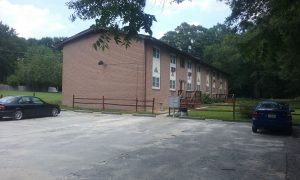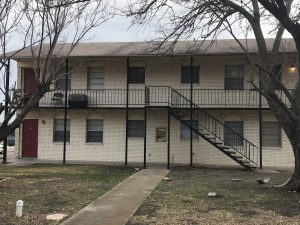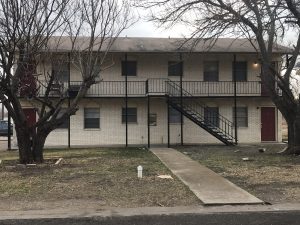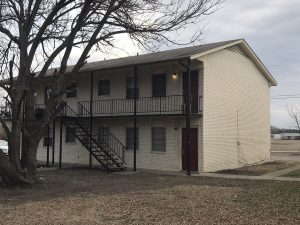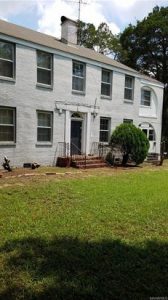- Profit Strategy: Buy & hold
- Number of Units: 2
- Amount Earned: $428/mo profit
- Personal Money Invested: 20-25% down payment
- Prior Experience: First deal
Uncategorized
Sheldon Lehman
- Profit Strategy: Buy, rehab & hold
- Number of Units: 2
- Amount Earned: $1,800/mo profit
- Personal Money Invested: $48k + $30k rehab costs
- Prior Experience: financial advisor who had been flipping SFHs since the 90s
Nancy Watts
- Profit Strategy: Wholesale
- Number of Units: 2
- Amount Earned: $10,000
- Personal Money Invested: $0
- Prior Experience: She’s been buying SFH rentals since 2003 while working in corporate world. After being laid off in 2006, she went into SFHs full-time
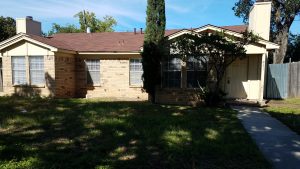
Casey & Christy Speer
Quick Facts:
- Profit Strategy: Buy & hold
- Number of Units: 6
- Amount Earned: $925/mo
- Personal Money Invested: $0
- Prior Experience: Prior to closing their first deal, Casey and Chris had been real estate investors for about 11 years with single family homes

Here’s their story:
For many real estate investors, the profits they make from their deals help fund a lifestyle free from the stress of the corporate, 9 to 5 world and full of luxury “toys” and lavish vacations. For Casey and Christy Speer, who are celebrating their 40th wedding anniversary in 2019, the incredible real estate empire they’re building is all about doing the Lord’s work – or what Christy says, “allowing us to be positioned financially so we can do whatever, wherever and whenever God directs us.”
In fact, the Indianapolis couple’s exponential success with single family homes (150 and counting!) – and resulting expansion into owning a real estate brokerage, property management company and general contracting business – all began as an answer to prayer. In 2007, the longtime Faith Promise missionaries were funding their trips on a shoestring, with regular paychecks supplemented by cash advances on their credit cards.
“Because trips with this organization are completely self-funded, we were praying and asking God for the best way to secure enough funds to ensure that we could go anywhere He needed us to,” says Casey. “Through research, we learned the top industries in the world that created the most self-made millionaires. We came up with real estate investing and the stock market, and we started investing in both. We knew we were headed on the right path when we were able to buy our first house in Columbus, Indiana, which retailed for $150,000, for less than $35,000 at a sheriff’s sale. We put $130,000 in rehab costs into it and still made over $100,000 on our first deal. Christy was part of these deals from the start, and joined me full time in 2011.”
Over the years, Casey and Christy’s success in investing has self-funded missions trips together to Japan, Mexico, Haiti, Canada, Belize and other Central American countries. For part of that time, Christy was bound to North American travel by her work as an operations and marketing executive for Crown Financial Ministries. Casey has taken solo missions trips to England, France, Ecuador, Tanzania, India, China, Japan and Rwanda, etc. – 18 countries in all!
Early on in their investment career, the Speers learned a pivotal lesson that helped accelerate their earnings and profit potential: that they didn’t have to use their own money, or even private investors to fund their deals. They learned how to buy property with owner financing, and about how to generate residual and passive income. Casey defines residual income as “money that comes in month after month that you’re managing and overseeing personally,” while passive income is “when you have all the money coming in every month from rentals but it’s taken care of by someone you’ve hired, so that you can concentrate on other things.” Casey enjoys calling the latter “pajama income.”
“The key to everything,” Christy says, “is learning about all the various tools available to us, including zero down and owner financing, wholesaling, subject to properties, lease options and options and mortgages. We feel that God’s given us a big toolbox that we can use along the way.”
The Speers’ involvement with Lance Edwards, which has helped them expand their horizons into small apartment investing, came via Ron LeGrand. Inspired by their initial successes and wanting to secure every advantage possible, Casey and Christy became students of the nationally recognized author and real estate expert and trainer. At one point, LeGrand tried to recruit them as mentors/coaches. Over the years, they heard Lance speak at some of LeGrand’s events – and in 2018 decided to go with Lance’s marketing package and enroll in his boot camp.
“We found that we could plug his process, especially the mailing and follow-up elements, into the internal processes that we had developed for our single family home investments fairly easily,” Christy says. “Casey and I analyze the numbers and our support process in house pulls comps for us. He or I then make the calls and decided whether to proceed with an LOI and any appropriate follow-up. We have what we call a ‘tickle system’ that we have employed in our entire business, and we have added the potential apartment deals into that mix.”
Casey and Christy’s first small apartment deal, which earned them a spot on Lance’s Apartment Champions web page, was a property in Louisville that came from their targeted mailings. They thought it might be a quick wholesale deal, but as they got into it and Casey kept negotiating the price down (a process he equates to “a dance”), they realized it made more sense to buy and hold because of its potential as an ongoing income generator. One of the units in the historic building was a four bedroom, two bath dwelling that rented for $1100 and it was already in HUD Section 8. That unit alone would pay for their principal, interest, taxes and insurance each month. The building also had five units with one bedroom, one bath.
The owner was an older gentleman and motivated seller who, Casey explains, “just wanted to get rid of it.” His asking price was $150,000. After following Lance’s process, generating the LOI and getting it under contract, Casey negotiated a first round reduction to $130,000. After inspections, he got it down to $120,000, which is what The Speers bought it for. Since then, they’ve been on a small apartment roll, buying three duplexes outright in Indianapolis and a four unit in Louisville which they financed through the bank. These are also buy and holds.
“It’s pretty simple,” Christy says. “Small apartments are an opportunity to have multiple revenue streams from a single property.” Casey adds, “When you think of the time, attention and effort that goes into the process, due diligence, research and contracts to do a deal on a single family home, why not spend the same amount of time on a small apartment that will generate much bigger monthly numbers for us?”
The Speers believe that, Lord willing, they will soon have enough income generating properties in their portfolio to allow them to spend all their time dedicated to world missions and His Service. Yet even as they attend to the real estate in their own backyard, they are spiritually cognizant that every aspect of their work as investors is an extension of their ministry.
“We consider our tenants and residents and anyone who has a mortgage under us as our ministry on any given day,” Casey says. “As our lives developed together, we found that we were both motivated people and big thinkers who saw the world as our mission field. Our prayer to the Lord then as now is to use us as his hands, feet and mouthpiece. That has always seemed very natural to us. Everything boils down to having a goal and an accompanying motivational action plan to get you there. As 19th Century British missionary C.T. Studd once said, ‘Our life on earth will soon be passed. Only what’s done for Christ will last.”
Mark Jansen
Arman & Tony Abedini
Quick Facts:
- Profit Strategy: Buy, rehab and resell
- Number of Units: 2
- Amount Earned: Expect to earn around $30k profit once they sell
- Prior Experience: First apartment. Purchased a SFH prior.
Here’s their story:
One of the most fascinating and inspiring success stories emerging from Lance Edwards’ Small Apartment Bootcamp is the unique father-son partnership of Arman and Tony Abedini. While such family-fueled dynamics are not uncommon in the world of real estate investing, the Beaverton, OR based Abedini duo boasts a unique twist: Arman is only 11 years old!
At an age when most sixth graders still receive an allowance from their parents and play computer video games and outdoor sports after finishing their homework, Arman, under the mentorship of his dad, is already an experienced dealmaker. He is currently drawing income on investments that he and Tony made on a single family home in Alabama and a duplex they found via an agent, post boot camp, in Youngstown, OH.
With the help of credit lines tied to Tony’s other businesses through a local Oregon bank, they bought the latter property for $52,000 and have spent nearly $3500 in minor repairs and cosmetic touch ups. While actively looking for a buyer, they have rented out both units to lower income tenants. Ever the stats whiz, Arman knows exactly how much his yearly income will be, assuming full occupancy: gross $13,800, net $10,686.
“Whatever we ultimately sell it for, over the purchase price and what we have already sunk into it, is a win-win because of the experience Arman and I have both gained,” says Tony, who invested for years with his wife Melika in Subway shops, then gas stations and motels before plunging into real estate in 2016. “Whatever the money turns out to be, the learning process with each transaction and all the details of owning, fixing up and maintaining the property is invaluable.”
Arman adds, “We can take the experience we’ve gained on this property and other current properties and use that to make the process even more efficient and profitable on the next ones. One of the greatest things I have learned having gone through the Youngstown transaction with my dad’s help is, when you’re doing deals, don’t hesitate. Be strict on how much money you want from the buyer. If they come in wanting to negotiate, tell them this is the lowest you’ll take and nothing beyond that, if they want the property. If they don’t agree, you tell them you’ll go find someone else.”
While it may seem unusual to adults to have a boy of grade school age participate fully in a transaction – and Tony admits there are “haters” who ignorantly question the legality of it – Arman is beyond his years’ confidence and intelligence. Tony and Melika talk freely about their real estate deals in front of Arman and his eight year old brother Eideen and involve them to some degree in every venture. For several years now, Arman has been assigned with taking care of writing their checks; in addition, every week while they had their previous businesses, he would bring home their bills from the mailbox, open and sort them into envelopes representing each different endeavor.
“They don’t teach them those kinds of things in school,” Tony says, and it’s something they can’t buy with after-hours classes. The way I see it, he has advantages over most kids his age. Though we are Iranian by culture, he goes to a Chinese immersion charter school in Beaverton and so he’s fluent in Mandarin, in addition to English and our native Farsi. Combine these skills with his real estate savvy and it allows him to communicate effortlessly with adults from other companies, as well as investors who speak those languages.
“When Arman talks about real estate with adults,” he adds, “they do a double take at first, like it’s something unusual, but then they realize he’s really on the ball and knows what he’s talking about. Once they get over their shock, they ask how they can get their kids involved.”
Arman adds, “When people think it’s unusual for me to know this much, I use my dad for credibility. He’s more experienced dealing with people, and I do most of the work behind the scenes. I feel like I’m still at the beginner phase, and I definitely need more help even if I’ve already done these few deals. In the next couple years I am going to try to do a deal all by myself and start flipping properties on my own.”
Tony’s desire to impart his knowledge and wisdom to his sons to ensure that they are financially self-sufficient by their mid-teens traces back to his own father’s intense work ethic and a difficult childhood growing up in a family that immigrated from Iran to the U.S. (after several years living in Turkey) to escape an oppressive regime. He left Iran at 13 and arrived with his family in the States at 15 after his parents were granted political asylum. Tony describes those years as a “nightmare of emotional distress” and says that he spent his first years in his new country watching his dad – a former officer in the Iranian military – work up to 18 hours a day, 7 days a week at a print shop and gas station. The first time he recalls going on a vacation was on a business trip once he was an adult. He vowed when he became a father that his sons would have a better life than he had.
“I attribute my strong work ethic to my mom and dad who set a wonderful example for me and my siblings to work hard and make solid investments,” Tony says. “My wife and I set out on that path as well, working and building our investment portfolio during our prime years so we don’t have to work as hard as we get older. Because we don’t want our kids to experience the same hardship I did growing up, we want them to earn their own keep and make, spend, save and invest their own money. My wife and I also plan to open up a financial education institute to teach younger people about things like credit, investments and how to turn credit into investments!”
While Arman has his heart set on buying his own Alfa Romeo 4C Spider convertible when he’s 16, he’s also eager to earn what his mom calls “mailbox money” in the intervening years that he can save and invest in other properties. Long term, of course, he wants to build a portfolio that will allow him to have more financial and career choices in his life upon entering young adulthood. At the rate he’s going, Tony estimates that by the time his son is 13, he should have $12-15,000 in annual passive income; and by 16, $30,000 a year – over half the average salary of recent college graduates in 2019.
“It seems very brave of my grandfather, almost impossible to survive the attacks he did as a military officer and go through all those difficult trials to ensure safe passage to the U.S. for his family,” Arman says. “I think it’s amazing everything worked out so well in the end. I am inspired by his story, his hard work and dedication to his family so that we all could have a better life and opportunities to succeed. I work hard in honor of the sacrifices he and my dad have made for us. They make my life happen so I strive by my own hard work to make their lives better.”
Melissa Newell
- Profit Strategy: Wholesale
- Number of Units: 2
- Amount Earned: $9,600
- Personal Money Invested: $0
- Prior Experience: Interior designer by degree, she spent 2 years in residential real estate. No prior experience in small apartments.
Here’s her story:
Melissa Newell is one of Lance Edwards’ most inspiring success stories, a 90 day challenge winner who closed her first deal in only two months by wholesaling a duplex with 100% owner financing and making $9,600 profit using none of her own money.
She is also a woman of deep faith who says a powerful prayer before every phone call to a prospective buyer or seller that helps her that helps allay bouts of deep anxiety, especially when it comes to discussing personal financial matters. Her words cut to the heart of the matter as they seek comfort and support: “God, I know that you are stronger than my fear, you can take my fear away and give me strength to overcome that fear. So I lay that fear at your feet and ask you to help me with that call.”
“The reason I say it out loud,” Melissa says, “is that when I hear the words, I can absorb the words and more intensely feel the connection to God, who I can visualize standing there listening.”
Melissa has another secret weapon in her arsenal, directly from Lance’s training, that makes a huge difference. “I was talking to him about my fear of making calls, and he gave me an amazing tip. He told me when I’m on a call and start to get nervous, I should stand up and see if that helps calm my nerves. He said that will bring a different perspective. I tried it, it worked and helped me continue the call, going from having a shaky voice to sounding more confident. Since then, I have taken that advice every time I’m on the phone.”
Melissa and her husband Doug, a career Army officer, spent two years on the residential side of real estate, flipping properties, before discovering Lance’s boot camp for small apartments online and enrolling while the two were based in El Paso, TX. One of the ways Lance’s organization helps his boot camp students is sending out query postcards, and she found the seller of the Las Cruces, NM duplex she wholesaled via a phone response to one of these cards. The man and his wife were an older couple that weren’t sure they wanted to manage the property anymore. With her coach Yvonne on hand to help her overcome her initial trepidation, Melissa reached out and built a rapport with him.
He had stated up front that he was just calling out of curiosity and wasn’t sure about selling. He said that he would have to ask his wife. He called back later and told Melissa he had fun talking to her earlier and they wanted to touch base to see what she could do and what kind of numbers she could offer. She sent them an LOI (Letter of Intent), a non-binding proposal between a buyer and seller, with three options. Having long since paid off the property and agreeing to take monthly payments for their property until they cashed out in the near future, they accepted her proposal of seller financing.
In trying to find a buyer, Melissa’s first instinct was to advertise the property online – but when that didn’t work, she remembered Lance’s teaching to always be flexible and think outside the box. In working on a previous deal that didn’t ultimately go through, she had accumulated numerous emails from potential buyers interested in that property. She emailed info about the duplex to everyone she had received emails from and got a “hit” from an out of state investor who was a former resident of El Paso who wanted to invest in a property near there (Las Cruces is 46 miles away). The buyer, who owned multiple properties, asked the management company he works with to run numbers and he came up with a price he was willing to pay.
“We negotiated back and forth, and he came in a bit lower than I had in mind, and I was able to take him up a little,” Melissa says. “He came back up when he learned that the duplex was seller financed and I had worked hard to ensure that it was. My seller wanted 60 days to close on the property and I found the buyer before the closing date. So essentially, I sold the contract to the investor for $9600, which was my profit.”
Upon that first successful deal, she spoke optimistically about her goals to negotiate from 2-3 deals per month. Instead, considering the challenging, overly saturated wholesale market in El Paso – where she and her husband lived until a recent transfer to Ft. Leavenworth, KS – she switched back for a time to flipping single family residences. Now that she no longer lives in El Paso, she is now planning to return to wholesaling.
One of the reasons Melissa is excited about building a successful career in real estate is because it gives her an opportunity to thrive in a business that is at least tangentially related to her passion for interior design, which was her major at Virginia Commonwealth University. She and her two young adult children are proud to be a military family, but she had been frustrated for a long time that Doug’s career and its inherent relocations came at the expense of her ability to find sustainable work in her chosen field.
“I really wanted to help out with the family finances,” she says. “Here my husband put me through school and I struggled to find a job in my field. I really wasn’t sure about my life. Not long after I received my degree, we moved from the area. I was doing an internship while still at VCU, but I couldn’t get a job with that company because they won’t hire you if they know you’re not going to stay long. In that industry, people want you to stick around. I was frustrated with the fact that we spent all that money for a degree that I wasn’t using. I wanted to find something I could do, if nothing else, to feel that my college education wasn’t a waste of time. Real estate is finally giving me that opportunity.”
Melissa makes clear that despite her frustrations, she has no regrets. Her family has been her priority and she was able to spend years as a stay-at-home mom, raising her son (now 22) and daughter (19). She is confident that her initial success after Lance’s bootcamp, and Doug’s participation in and enthusiasm for real estate investing, will ensure that both will be making a living doing that when he retires from the military.
“While it definitely has its ups, downs and challenges, I’ve learned that it’s okay to be a little fearful as long as you take that first step forward in faith,” she says. “I think what I enjoy the most are the wonderful people I have met along the way, folks like Lance, my coach Yvonne, the people in his organization, the realtors, contractors, owners and investors. I have enjoyed building relationships with and getting to know them. There is one investor I know who will actually pray with me over the phone when we’re talking about deals. It’s fascinating to experience a relationship in the business world that develops a rapport where we’re comfortable enough to share our mutual faith in God.”
Brad Shepherd
Scott Taylor
- Profit Strategy: Buy & hold
- Number of Units: 4
- Amount Earned: $1,000/mo profit
- Prior Experience: Primarily has worked in software with some experience in home renovations but no prior training in small apartments
- Personal Money Invested: Acquired with personal funds. Renovations will be done with a renovation loan. Once renovation is done, he will cash out.

